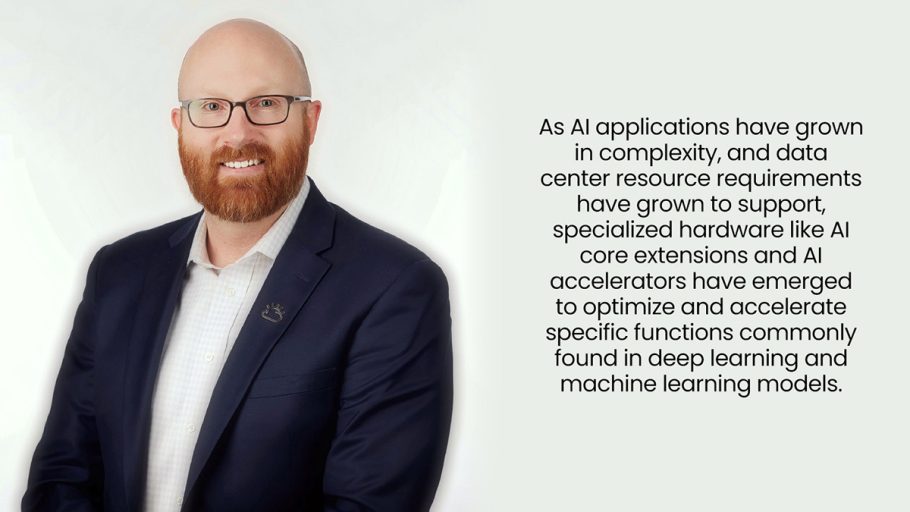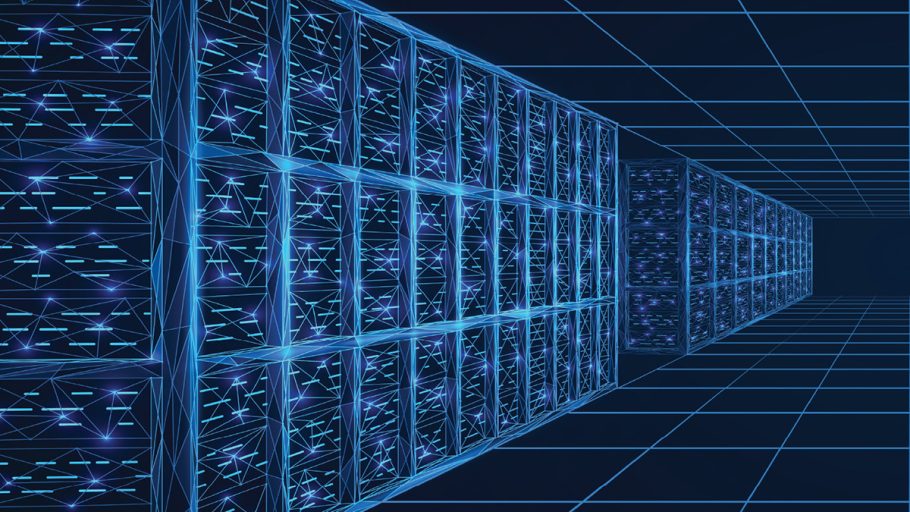Artificial Intelligence (AI) has experienced remarkable growth in recent years, transforming various industries and revolutionizing the way we live and work. A crucial factor in this progression is the evolution of hardware designed to support AI applications. This article explores the development of AI hardware, from graphics processing units (GPUs) to AI accelerators, and discusses the future of AI hardware and the impact on data centers globally.
The Rise of GPUs
The evolution of AI hardware has significantly impacted data centers over recent years, driving the need for more efficient and powerful computing solutions to handle the increasing demands of AI applications. The journey of AI hardware began with the adoption of graphics processing units (GPUs). GPUs became popular for AI tasks due to their parallel processing capabilities, which are well-suited for the large-scale computations required by machine learning algorithms. GPUs, initially designed for rendering images and videos, possess parallel processing capabilities that make them ideal for handling the large-scale computations required by AI algorithms. In the early days of AI, GPUs became the go-to hardware for machine learning tasks, enabling researchers and developers to train models more efficiently. As AI applications have grown in complexity, and data center resource requirements have grown to support, specialized hardware like AI core extensions and AI accelerators have emerged to optimize and accelerate specific functions commonly found in deep learning and machine learning models.
The Impact on Capacity
As AI applications such as large language model inference has refined in accessibility and capability, the demand for the technology has become a top focus area for almost all enterprises today. To support this seemingly insatiable demand for AI capabilities, the demand for data center capacity has grown tremendously. Some data center operators have recently proposed acquiring entire nuclear power plants to support their capacity needs! This exorbitant demand, and capital required to support, has led to the need for development of more efficient capabilities. The need for specialized hardware to optimize and accelerate AI functions has become critical for the industry and the resources available today.

AI Core Extensions and AI Accelerators
AI core extensions, are designed to optimize and accelerate complex functions commonly found in deep learning and machine learning models. These extensions are integrated into the silicon hardware, providing significant performance improvements for AI workloads. AI accelerators, on the other hand, are specialized silicon hardware designed to efficiently execute AI-related tasks like deep learning, machine learning, and neural networks. They can be dedicated units within a core, separate chiplets on a multi-module chip, or separate cards, similar to GPUs of today. AI accelerators offer faster, energy-efficient computing, making them essential for handling the demanding computations required by advanced AI models.
Impact of AI Accelerators on Data Center Capacity Needs
Recently published research has demonstrated AI Accelerators can deliver a 72x reduction in energy required for large language model inferencing, when compared to leading GPU offerings available today. Naturally, the associated data center capacity required to support this specialized hardware becomes drastically reduced when compared to the GPU clusters that are being built today. In addition, the relatively extraordinary technologies required to support the extreme power density of GPU’s, such as direct-to-chip liquid cooling and immersion cooling, becomes unnecessary as the reduced thermal footprint of AI accelerators can be supported with traditional air-cooling technologies. This aspect opens the door to applications that previously were not achievable due to the extensive requirements for supporting GPU technologies of today.

The Future of AI Hardware
The future of AI hardware is promising, with ongoing research and development aimed at further enhancing performance and efficiency even further. One emerging trend is the integration of AI accelerators with other hardware components, such as central processing units (CPUs) and field-programmable gate arrays (FPGAs), to create heterogeneous computing systems. These systems can leverage the strengths of each component, resulting in more powerful and versatile AI platforms as whole. Another area of focus is the development of dedicated AI chips, often referred to as AI Processors or neural processing units (NPUs). Differing from accelerators, these are chips specifically designed for AI workloads, offering optimized architectures and instruction sets tailored to the unique requirements of AI algorithms. Last, is the development of quantum computing for AI, known as Quantum AI, which holds the potential to completely revolutionize capabilities, but still has many technical challenges to overcome today.
Conclusion
In summary, the evolution of AI hardware has significantly impacted data centers by driving the need for more efficient and powerful computing solutions. The next generation of hardware for AI promises to bring substantial changes to data center technologies and capacity needs of today. Specialized hardware like AI accelerators will enable data centers to handle the increasing demands of AI applications, leading to improved performance, reduced energy consumption, and better utilization of data. The ongoing research and development in AI hardware promises even more significant advancements in the future, enabling more sophisticated AI applications and transformation of industries in unprecedented ways. Its an exhilarating time to be engaged in this industry today, and the future technologies yet to come!
ABOUT THE AUTHOR
Jonathan Tuil is currently Global Executive Director of Data Center Operations for IBM Cloud. In his role he is responsible for 24x7 operations of all data center locations globally supporting IBM Cloud. Prior to IBM, Jonathan served as Senior Director of Data Center Engineering at Visa, and has held various roles in data center engineering, construction, commissioning and operations throughout his past 20+ years in the industry.



